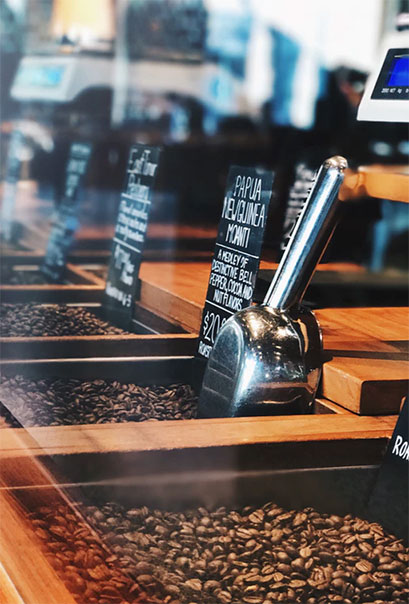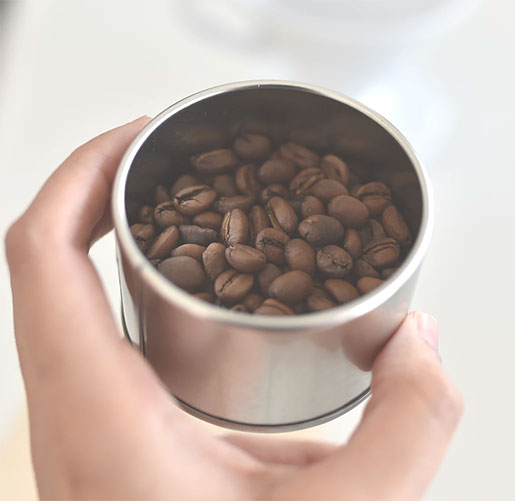A collection of truths and lies about coffee blending

One of the issues that is increasingly involved with coffee beans is blending. What are coffee blends, what do they have to offer and what are their weaknesses?
Mixing different varieties of coffee, namely blending, is a story as old as coffee itself, since it dates back to the time when the Dutch colonialists broke the Arab coffee monopoly. Once the planet acquired more than one varieties of coffee, the next move of coffee lovers was, of course, to mix them up!
The coffee world has been based on blends for dozens of years - the discovery and spread of espresso was a decisive step in this direction, as blending Arabica and Robusta has been for years extremely popular for espresso blends, endorsing espresso with the features that made him popular.
In recent years, the spread of "Third Wave" coffee seems to crowd out the blends in favor of single origin coffees, arguing that only coffees of specific geographical origin are highlighting the special flavors and aromas of coffee. Along with the shift to single origin choices in various products, even in several that traditionally rely on blending, such as whiskey or olive oil, coffee blends seem to be outdated- but are they, really?
We have gathered some truths about coffee blends - and some popular lies, trying to put things in place. As we usually say, it is important to always drink the coffee we deserve.
Truths & Lies about blending
 By blending, we achieve balance in flavors: TRUTH
By blending, we achieve balance in flavors: TRUTH
The main purpose of blending more varieties of coffee is the richest but also more balanced flavor. As different varieties of coffee tend to have a completely different profile, blending them achieves a balance of flavors and aromas, resulting in a more "rounded" cup. By combining different varieties of coffee, we combine different characteristics such as acidity, body, aftertaste, flavor profile, resulting in a blend that combines the best of them, while minimizing the less desirable.
Any single origin coffee is bettter than any blend: LIE
Whether the sack that we open contains single origin coffee or a coffee blend is not a sign of coffee quality. A blend may consist of quality coffee beans, while a coffee sold as a single origin can be a second grade. It is enough to think about this: even the cheapest, poor quality blends are made up of mixed single origin coffees.
The organoliptic characteristics of coffee are better percieved through a single origin coffee: TRUTH
Of course, if our coffee comes from a specific country, a specific region or even a specific plantation, its natural features are more accented. There is no better way to taste the flavor of African coffee than a cup of single coffee origin from Kenya or Ethiopia. This does not necessarily make coffee "better", but its taste is clearly clearer and its natural features more accented.
Blending is easy and it's done to hide away poor quality coffees : LIE
Blending different coffees is an extremely difficult process that requires tremendous knowledge and experience, hundreds of tests and of course access to quality coffee beans to be done properly. Besides the selection of varieties, the blender has to make decisions about the roasting of each variety and their mixing before or after it, but also with the exact composition of the mix. Considering that the big coffee companies are seeking stability in the flavor of their blends, we understand how difficult work has to be done to create blends. Poor raw material is hard to hide, as it will result to poor quality blends. The difficulties of mixing and the tremendous experience that is needed are perhaps one of the reasons many small coffee roasters decide not to blend and focus on single origin coffees.
 Depending on the brew we can get better result with blends or single origin coffee: NEITHER TRUTH, NOR LIE
Depending on the brew we can get better result with blends or single origin coffee: NEITHER TRUTH, NOR LIE
This statement hides some grains of truth, but is far from being a rule. As for espresso, we can achieve excellent extractions both with blends and with single-origin coffees, of course, of course, using good quality coffee. On the other hand, in filter brewign, Robusta blends may not produce such a good result, since Robusta's features enhance the flavor of the espresso but are usually relatively blunt in filter coffee - but in this case too, one 100% Arabica blend will have excellent results if extracted properly. Delightful coffee is a matter of good raw material, proper processing (roasting and / or blending) and, of course, a matter of personal taste.
Coffee blends are low quality, as opposed to single origin coffees: NEITHER TRUTH, NOR LIE
Undoubtedly, there are a number of second-choice coffees on the market, as is the case with any product - fortunately, Greek Coffee lovers are up to date and aware and know what they are looking for from their cup. It is also a fact that in the early years of the diffusion of single - origin coffees, single origins releases were, in their majority, thoughtful and qualitative. Today, however, where single origin coffees have become fashion and trend, alongside quality choices, one can find poor quality single origin coffees, which simply take advantage of hype. A good coffee will always be good coffee, whether it is monopic or blended.
A good blend is the only way to have consistency in our cup: TRUTH
Although they are the combination of many individual coffee varieties, coffee blends show remarkable stability in the aroma, taste and handling they require during extraction - stability is one of the toughest properties blenders want to achieve. On the contrary, quality single origin coffees are more adventurous, with the result of varying depending on the crop: a coffee from Sumatra, even from the same farm, will never be exactly the same as the previous or the next. Of course, this is a feature that may be desirable and that makes us explore different flavors, but on the other hand, the stability in taste and the sense of familiarity in our cup is also extremely important.
The best choice for us, coffee lovers, is to keep enjoying the best of both worlds: we always choose quality coffee without ignoring the courage, the taste and the stability of the blends, and without denying the adventurous flavor and the knowledge that single-origin coffees offer us. It's all about good coffee, after all!










